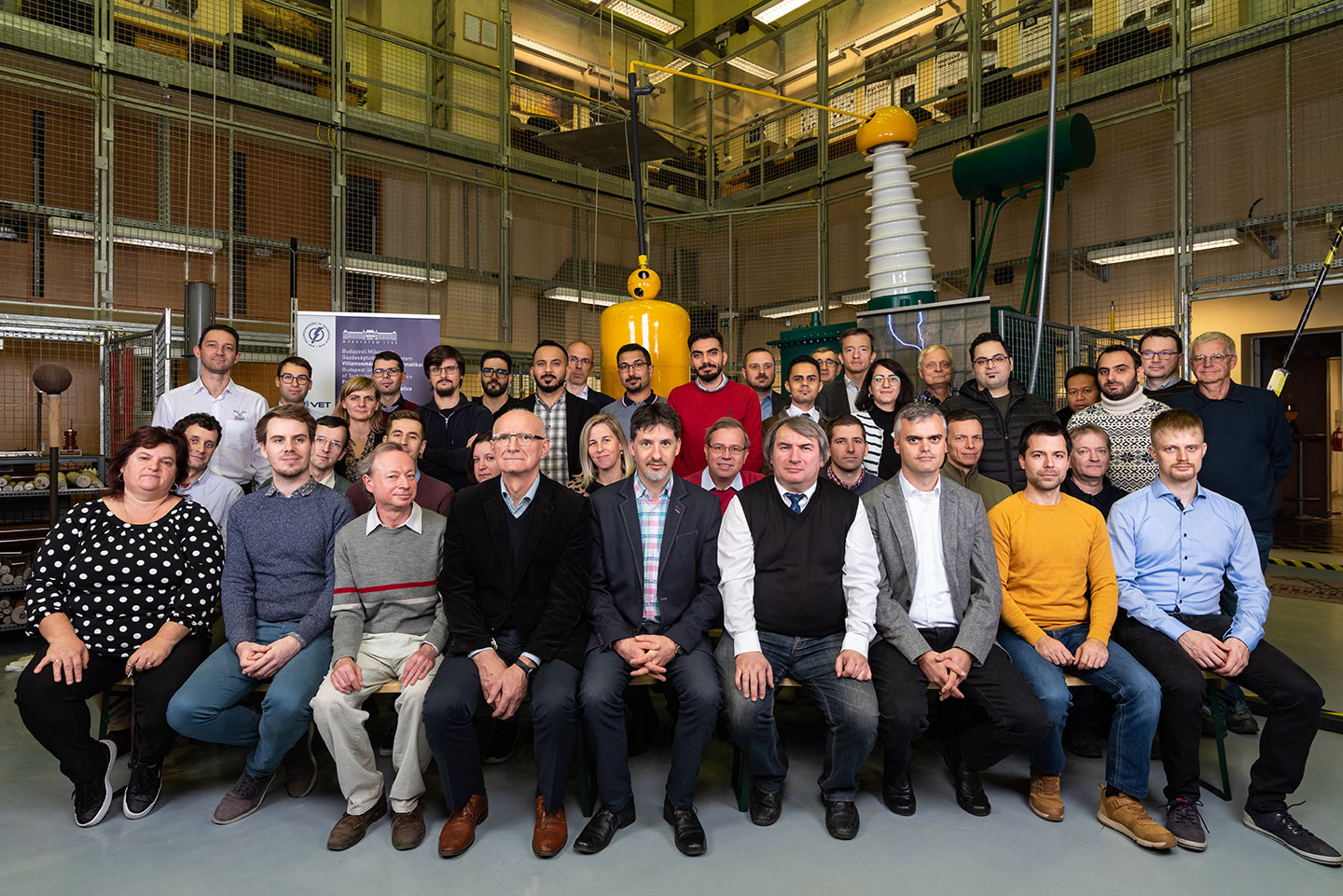About | Copyright © 2025 Budapest University of Technology and Economics
Power Systems and Energy Conversion (VME) group 
The teaching and research scope of VME
Power Systems, disciplines, devices and methots of the PS (power stations, renewable energy sources, network, substations, consumers) steady state and transient operation, cooperation, conventional and computerized control, microprocessor based and conventional protection systems, electric energy market and power quality, including inderdisciplinary topics with involvement (smart systems, smart metering, signal processing, monitoring, reliability, environmental effects, PS EMC).
Electrical machines, electrical drives, controlled electrical drives, servo and robot drives, microcomputer controlled drives, megújuló energetikai hajtások (ez magyarul sem helyes, de legyen drives in renewable energy conversion), electric machines and drives of electric vehicles, measurement techniques, monitoring systems, applied superconductors, engineering problem solving, direct energy converters, applications of finite element analysis for electric machines.
The research groups at VME
Power Systems
lead: Dr. Péter Kiss
1. Operation, control, protection, coopetative power systems
- Power system operation and computerized control.
- Power system modelling, analysis and engineering.
- Cooperative power systems.
- Microprocessor controlled and conventional protection systems.
- System recovery, reliability.
2. Power system transients
- Electromechanical transients, low frequency inter-area oscillation.
- Electromagnetic transients.
- Modelling of transient.
3. Application of new technologies in the power system
- Measurement technology and signal processing.
- Diagnostic és monitoring.
- Smart systems (fuzzy, neural networks).
- Electric energy market deregulation.
- Power quailty.
- Aplication of power eletcronics in power systems.
- Electric railway's traction systems.
- Telecommunication on power systems, Power Line Communication (PLC).
- Electromagnetic Compatibility (EMC) in power systems.
- Environment protection.
- Integrating renewable energy sources.
- Operation of small-scaled power generators (<50 MW).
Smart Power
lead: Dr. Dávid Raisz
- Modeling, simulation and stability of power systems
- Modeling of electricity markets, market design
- Multivariate optimization algorithms
- Network and market operating algorithms
- Network integration of renewable/distributed producers and storage facilities
- Power system dynamics
- Grid-connected power electronics devices
- Real-time simulation
- HIL/CHIL/PHIL simulations
- Operation control systems
- SCADA
- Control methods
- Intelligent algorithms in system operation
- Demand-side management
The site of the MVM Smart Power Laboratory can be found here.
Electrical Machines and Controlled Drives
lead: Dr. Károly Veszprémi
1. Conventional and non-conventional electric power converters
- Application of conventional and non-conventional electric power converters.
- Application of permanents magnets and superconductors.
- Computer-aided engineering problem solving to develop new products.
- Application of finite element methods for design and verification.
2. Controlled electric drives
- Villamos hajtásokban alkalmazott teljesítményelektronika.
- Power electronics used in electric drives
- Drive control with microcomputers
- Voltage inverter drives (pulse width modulation methods, current vector controls)
- Servo and robot drives (torque, speed, position, and sensorless controls)
- Energy-efficient, grid friendly, and renewable energy drives
- Vehicle drives and electric equipment of Vehicles
- Robust soft-computing drive controls
3. Diagnostics and monitoring of electrical machine and drive systems
- Development of an expert knowledge base for the optimal diagnostics and monitoring of a given electromechanical conversion system. Utilization of the given possibilities offered by Park-vector measurement technology.
- Measurement technique for condition characteristics.
- Computer evaluation methods of measurement data.
- Support in decision making (operation, troubleshooting, preventive maintenance).
